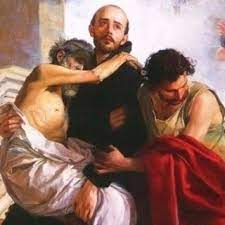Joaquim Magalhães de Castro
João de Brito accompanied all these persecutions in south India from outside; he had wanted to suffer those trials with his converts, but they had managed to keep him out from such convulsions, reminding him that the flock might lose some sheep, but it could not be without its shepherd.
In 1685 Brito was appointed Superior of the Madurai mission; his work and his methods were finally recognized by the other members of the Company.
In the summer, he decided to enter Maravá, a territory ruled by the main vassal of the king of Madurai. Missionaries had not entered Maravá since the persecution of 1665, although there remained some small Christian communities whose members left the province to receive the sacraments. João de Brito would then suffer new and harsher torments.
On May 5, 1685, in the heat of the summer, Brito crossed the border and took shelter in a forest of acacias. He remained there a month with such great success in the work of the spread of the Gospel and administration of the sacraments, that he was encouraged to penetrate further inland to Velanculam. Here he had even greater successes, as by the 17th of July he had already done 2,070 baptisms.
However, João did not remain hidden from the local authorities, so he was persecuted by them. When his arrest took place, he was accompanied by six catechists; the seven were immediately beaten up – Hindu officials intended them to invoke the god Shiva, thus publicly renouncing the God they heralded.
Faced with the resistance of those men, the tortures began; first was the water torture. This consisted of tying the victim, lifting him up and submerging him again in the water with a man sitting on his back, after which the victim was taken out to be interrogated. If he did not abjure he was plunged again. One of Brito’s companions did not resist and invoked the Hindu god; he was released immediately and left without further trouble. All others resisted and the torments continued.
While in this prison, John sent messages of encouragement by word of mouth or written on palm fronds, to strengthen and comfort the Christians, who were terrified that persecution was about to break out.
For more than a month, more torture and more beatings followed, without the six accepting the demands of the Hindu officers.


 Follow
Follow


